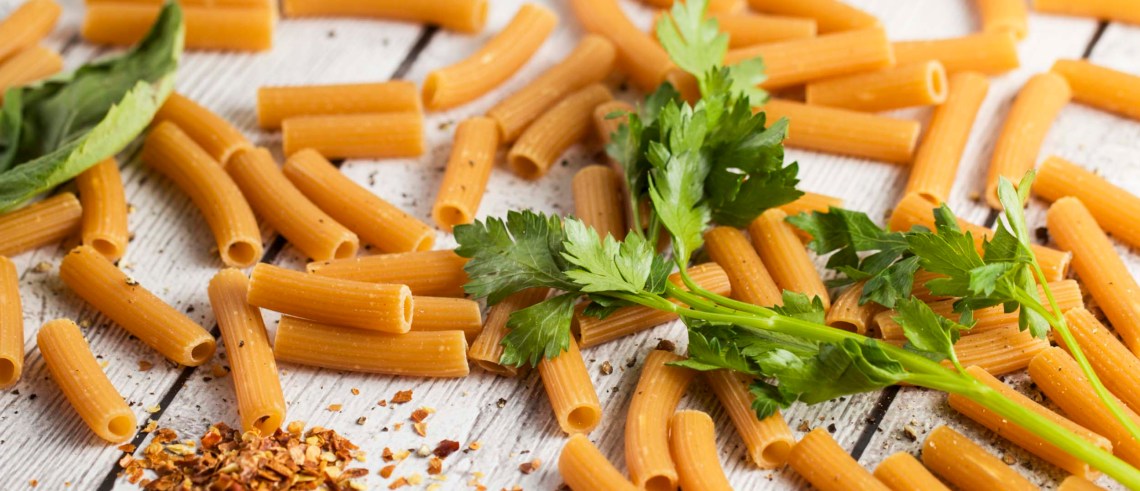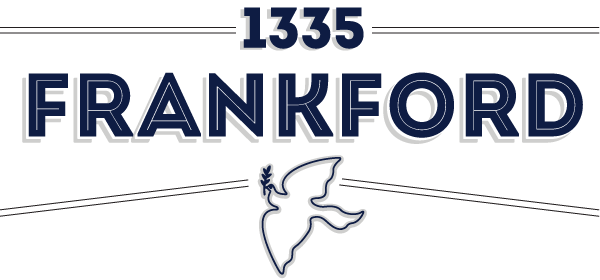Traditional pasta is a high-carb, not-so-healthy food option—but Banza has changed everything. Their chickpea-based pasta has half the carbs, twice the protein and best of all you can’t taste the difference (we dare you to try the Mac and Cheese).

Banza’s story is one of an entrepreneur who went from hating healthy foods to starting a pasta revolution. As a part of our entrepreneur series, we had a chance to chat with founder, Brian Rudolph, about Banza’s roots and being a young business man.
1) What made you start Banza?
I used to be a picky eater. Maybe even the pickiest eater of all time. The joke in the family was I subscribed to three main food groups: chicken nuggets, french fries, and spaghetti. My parents couldn’t convince me to eat much of anything else. Especially vegetables. One time, in a last ditch effort to feed me something with fiber, my mom buried a single baby carrot in a pool of ketchup. Even that did not work.
Fast forward a few years, and, much to the dismay of my inner-child, I started to learn that eating vegetables makes me feel great and the “three main food groups” make me feel like crap.
That was not easy for me. I love those foods. And I wanted to eat them. So I went in my kitchen and started substituting in healthier, vegetable-based ingredients into my favorite dishes.
Eventually I made a pasta from chickpeas, and it was delicious. I brought the pasta to work for my coworkers to try. When they liked it too, I realized I wasn’t the only one who would prefer a healthier version of pasta. Banza was born!
2) What’s your favorite Banza recipe?
My favorite way to eat Banza is simple – rotini with olive oil, salt, and roasted veggies. Recently, my girlfriend and I have been experimenting with the Banza recipe blog.


3) What is the Chobani Food Incubator and how did you get involved?
Chobani’s mission is to bring better food to more people. In order to take that mission even further, they are helping smaller companies with similar values reach scale.
I couldn’t be more grateful to be a part of the program. The grant and access to resources is a tremendous gift in its own right. But the mentorship is priceless.
Chobani is a company we’ve always admired. In just a few years, Chobani transformed eating habits for the better. We hope to do the same in pasta. The opportunity to learn from Chobani in a formalized setting is something special, and we applied immediately when we heard about it. They have applications opening soon for their next class!
4) Any guilty food pleasures?
Generally, I love a good feast with friends and family.
But if I had to say one food in particular, it would be my mom’s cakes. She is fantastic at baking. She recently made a Queen Mother’s cake. It was this rich, flourless dark chocolate cake that uses almond meal as the base. 10/10.
5) What advice would you give other young entrepreneurs on creating their own food startup?
1) Get out there immediately and start selling. If people won’t buy it, fix it. Before we sold Banza at any grocery stores, we sold at farmer’s markets. It’s the perfect focus group. We received endless feedback that helped us improve. Once it was selling well at the market, we knew Banza was ready to scale.
2) Learn from people who have successfully done what you want to do. I started this business at 23. Our team is small and we have no prior experience in food. Few things have made more of an impact on the trajectory of our company than the mentorship and guidance we’ve received along the way. The folks at La Colombe are no exception! We’ve learned a lot from Todd, Kyle and Chuck.










3 comments
Great post so informative and who would not like to ear a good pasta
Yes, you have persuaded us and we are seeking out the Banza. Thanks for looking out for our health!